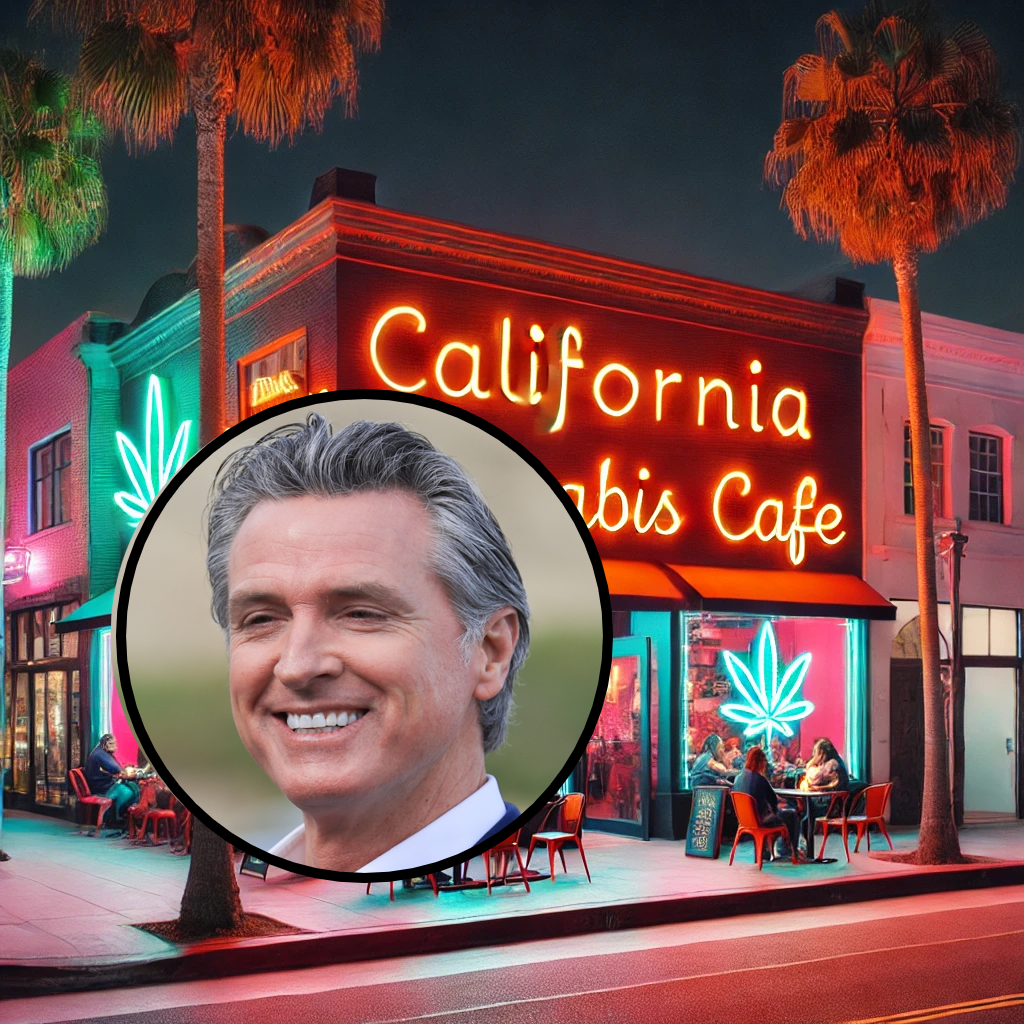California is preparing for a major shift in its culture as Governor Gavin Newsom recently signed Assembly Bill 1775, which will legalize cannabis cafes starting in January 2025. These cafes, inspired by Amsterdam’s famous cannabis spots, will allow patrons to smoke cannabis while enjoying food, coffee, and live entertainment, marking a return to indoor smoking in certain establishments.
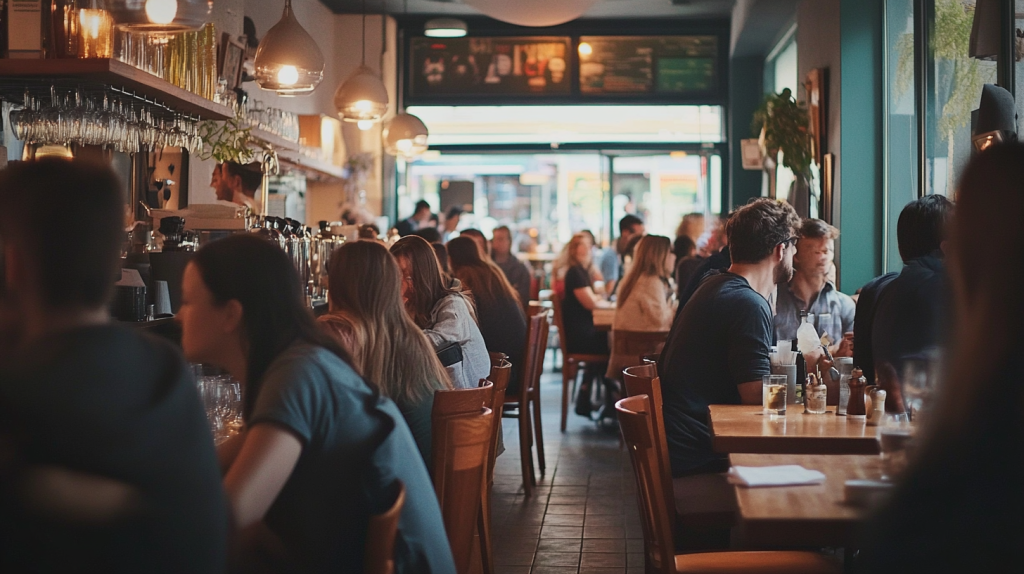
The new law is seen as a step toward reshaping California’s urban nightlife and could create an atmosphere reminiscent of Amsterdam’s cannabis-friendly red-light districts, where social and cultural experiences revolve around cannabis consumption.
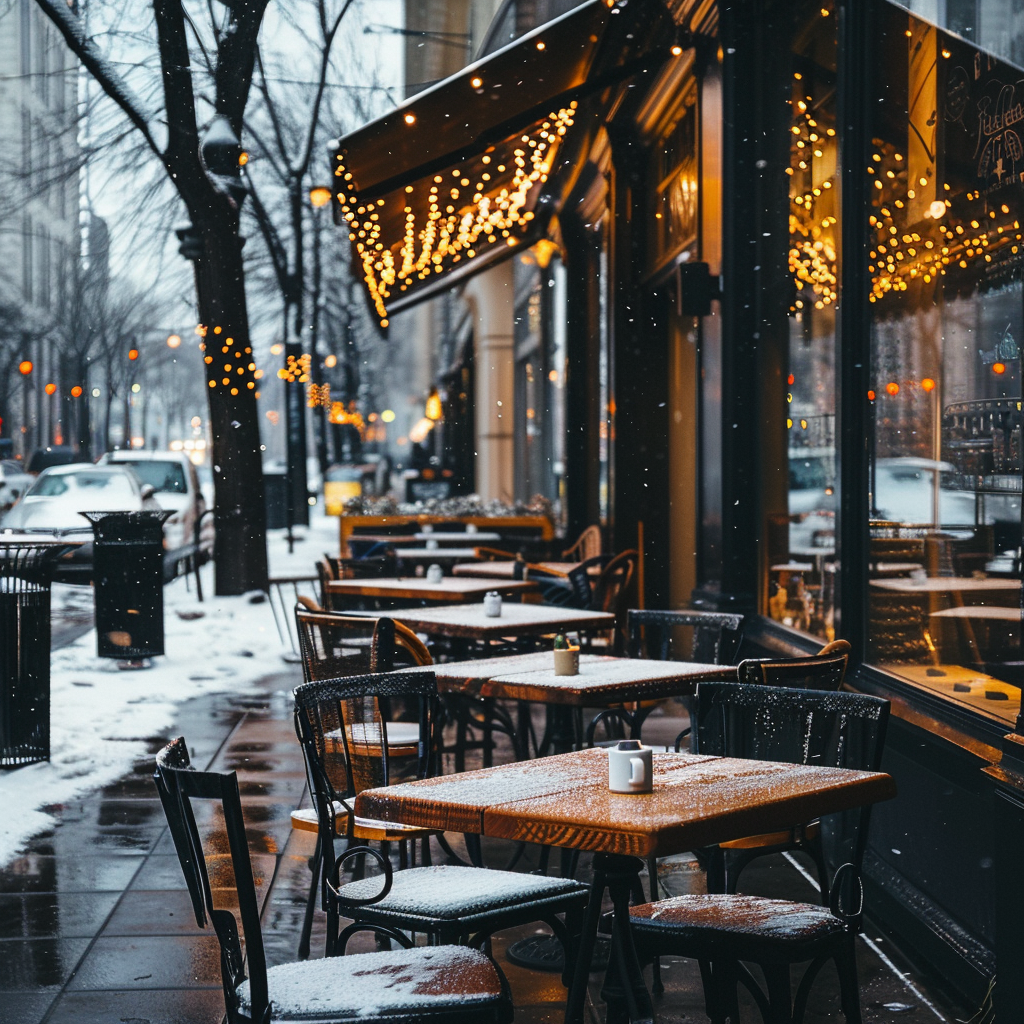
The new legislation permits licensed businesses to serve non-cannabis food and beverages, while also offering entertainment such as live music and performances. By combining cannabis consumption with food, drink, and entertainment, these cafes are designed to provide a social, immersive experience. The bill received widespread approval from the state legislature, signaling broad support for expanding California’s cannabis culture in a way that aligns with the entertainment and hospitality sectors.
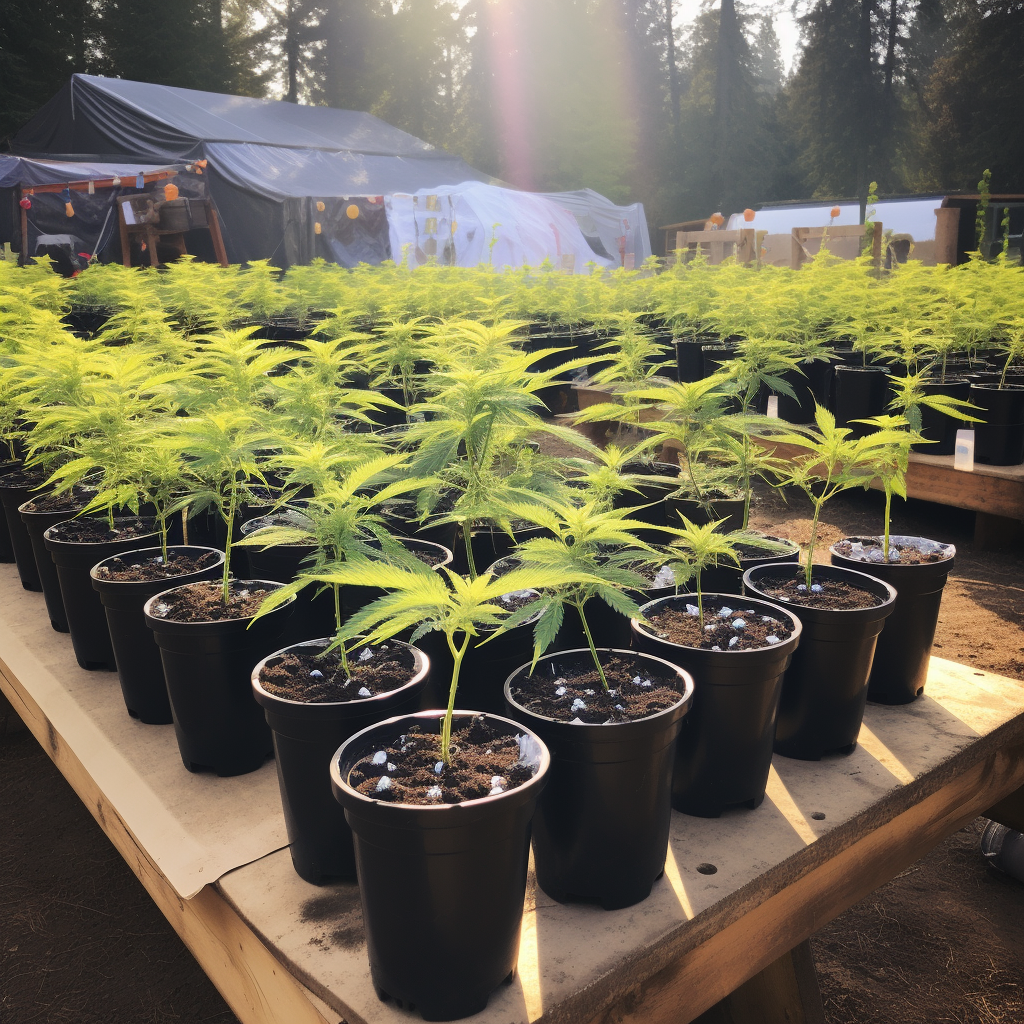
This change comes as California’s legal cannabis industry faces mounting pressure from the black market. Despite generating $4 billion in legal sales in 2020, illegal cannabis sales dwarfed that figure at over $8 billion. By offering legitimate, regulated spaces for cannabis consumption, the state hopes to draw consumers away from the illicit market. The integration of entertainment and dining with cannabis could mirror the success of Amsterdam’s red-light districts, where cannabis is enjoyed alongside social and cultural activities, helping to cement California’s status as a global cannabis destination.

Cannabis cafes are also seen as a potential solution to the economic challenges faced by many of California’s downtown areas, which have struggled to recover from the impacts of the COVID-19 pandemic. The introduction of these innovative businesses is expected to reinvigorate urban nightlife, creating jobs and boosting tourism.
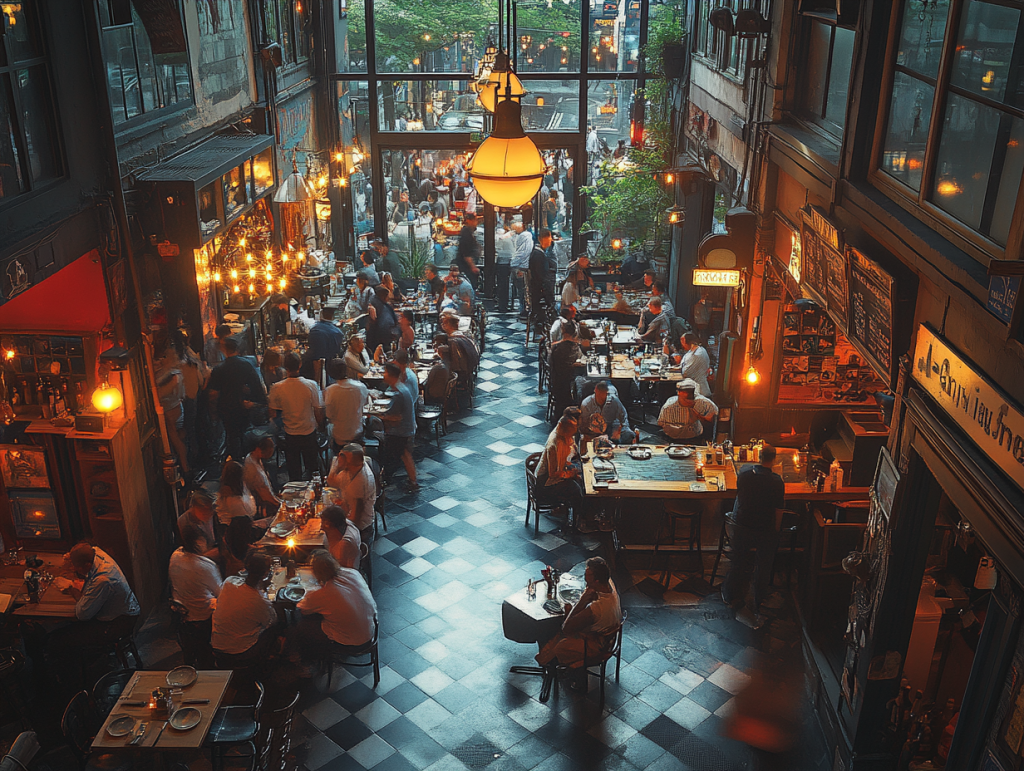
Cities could see the development of cannabis-centric districts, where nightlife, cannabis culture, and entertainment converge in a way similar to the vibrant scenes in Amsterdam’s red-light districts.
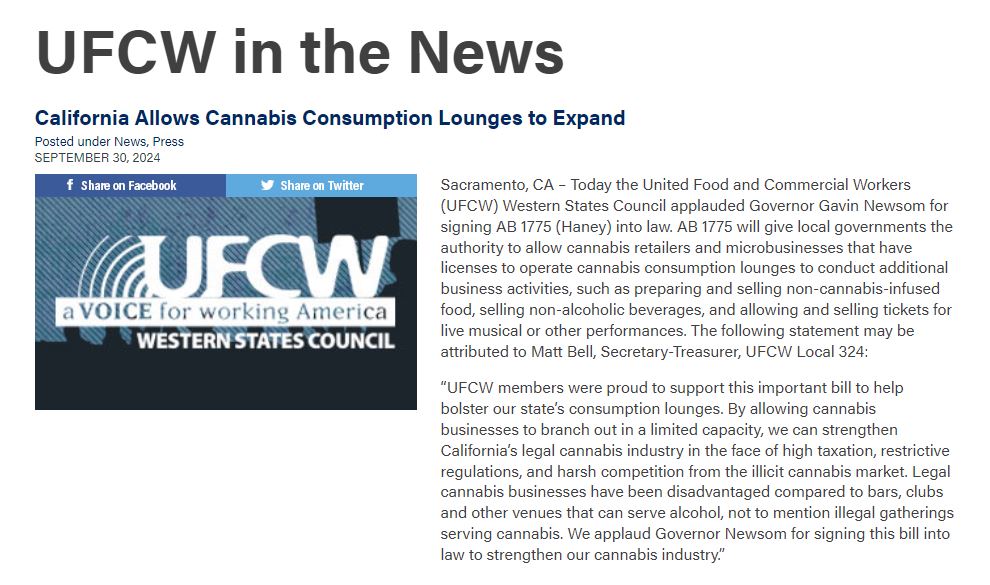
One key difference in this bill compared to previous versions is the inclusion of worker protections, particularly regarding secondhand smoke exposure. These protections have helped secure support from labor unions, making the legislation more politically viable and addressing concerns about the impact on employees. The backing of unions, including the United Commercial and Food Workers union, played a crucial role in the bill’s passage.
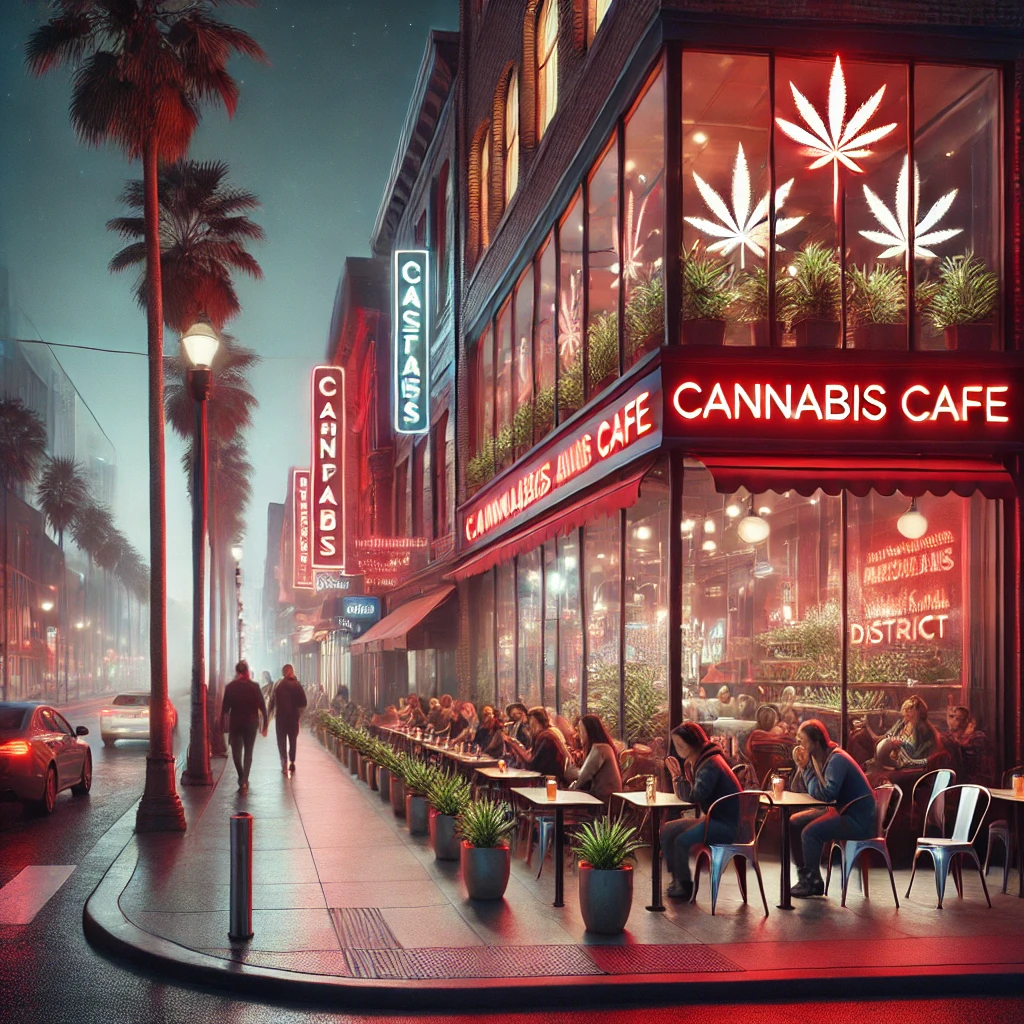
As California prepares to launch its cannabis cafes in 2025, the state is positioning itself as a hub for cannabis tourism, culture, and entertainment. The combination of cannabis consumption, dining, and live performances is expected to create a dynamic atmosphere that could transform certain urban areas into cannabis-friendly districts, attracting visitors and locals alike.
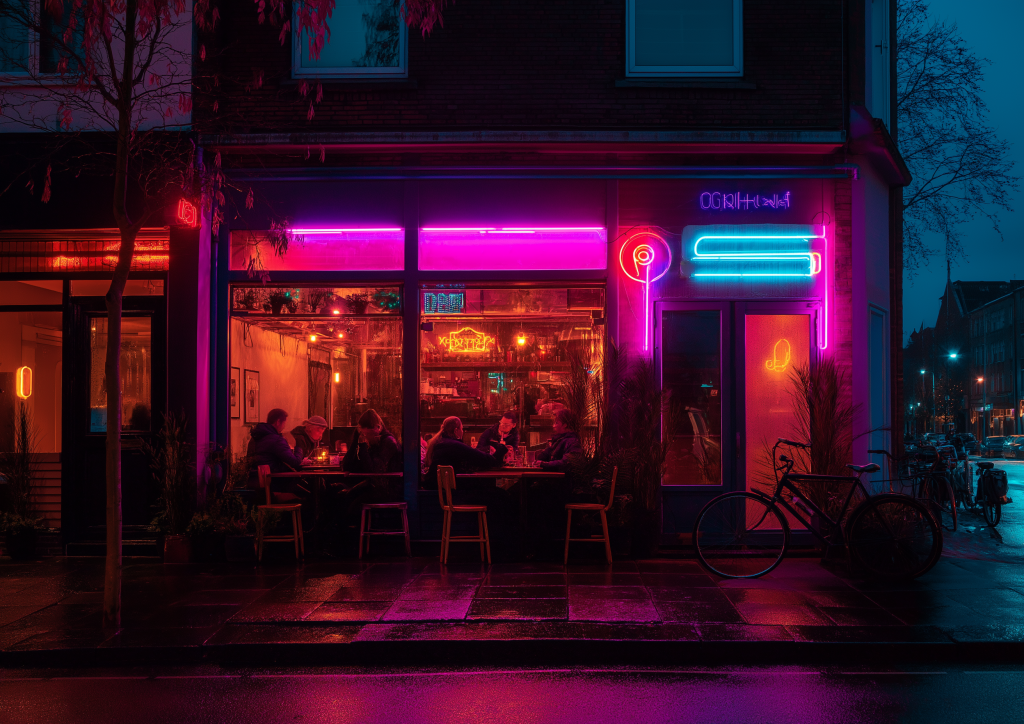
While not a red-light district in the traditional sense, these cafes could evoke a similar environment where cannabis consumption is part of a broader social and cultural experience, revitalizing the state’s nightlife and urban centers.

With the legal framework in place, California is set to become a leading destination for cannabis cafes, ushering in a new era of indoor smoking and cannabis-friendly entertainment that will reshape the state’s cultural and economic landscape.

